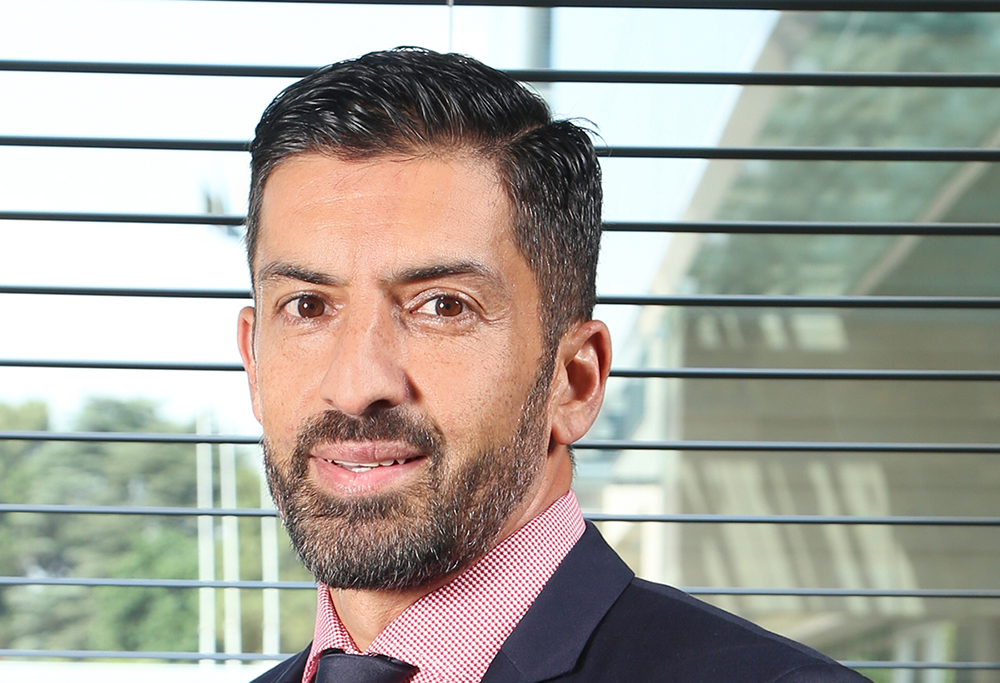Dr Leila Fourie is Chief Executive Officer of the JSE
SPONSORED
The Mail & Guardian and the Johannesburg Stock Exchange (JSE) are rolling out a series of webinars on “Navigating the Covid-19 pandemic” and have been engaging in strategic conversations and sharing insights and possible solutions to overcome the economic ramifications of Covid-19. The first webinar in the series featured Dr Leila Fourie, Group Chief Executive Officer of the JSE; Professor Johan Fourie, Associate Professor of Economics and History at Stellenbosch University; and Goolim Ballim, Chief Economist and Head of Research for the Standard Bank Group. It was hosted by Michael Avery, Anchor for Classic Business.
New innovations come out of every crisis, for instance vehicles were significantly transformed by World War I, and from the 2008 recession came Uber and WhatsApp. In South Africa there is a “coalition of the willing” between the public and private sectors emerging from this crisis, a more bottom-up approach to growing the economy, and a determined effort to spark and support SMEs. There is an opportunity for business and government in collaboration to galvanise and work together, and present ourselves as a viable destination for investment.
 Goolim Ballim is Chief Economist and Head of Research for the Standard Bank Group
Goolim Ballim is Chief Economist and Head of Research for the Standard Bank GroupAs in the 2008 recession, which exposed the vulnerabilities of banks, this crisis is exposing fault-lines such as high rates of inequality in South Africa. The state is now elevated as it supplies relief and food to millions, but this is only temporary; the economy is what provides long-term support; the private sector is unassailable, it is the only balance sheet in town.
Leila Fourie said: “We absolutely have to grow the economy, through the SME market, and both Australia and Canada have been tremendously successful in stimulating this market. They do have very different economies and cultural dynamics in investment, so what we need to do here is built solutions that are relevant to our country. We need faster time to market, less costs and less draconian rules for small businesses. The AltX board does make things a lot simpler and enables those with less capital to enter the market, and the costs of listing are much lower. Coming out of the crisis, we need to have a strong entrepreneurial spirit, and we must be able to encourage investors who are willing to take risks.”
The winners in this crisis are businesses that have cash, scale and are able to digitise. The poster child is Amazon, which has a model that fitted perfectly with lockdown. If we look back at the 2008 crash, a disproportionate amount of harm was done to small businesses, and millions lost their jobs, so now we need crystal-clear policy guidelines. Large businesses must incorporate small businesses into their supply chains. There were howls of protest when e-commerce was not allowed to operate under lockdown, but I think the minister understood how entrenched it would have become to the detriment of SMEs. There are opportunities in this platform economy, but most small businesses cannot scale and digitise easily.
 Professor Johan Fourie is Associate Professor of Economics and History at Stellenbosch University
Professor Johan Fourie is Associate Professor of Economics and History at Stellenbosch UniversityThere has been a much more collaborative and socially conscious approach from big business recently. We need a new type of enabling listing environment that is closer to a private placement platform and that attracts the right kind of investors. Tax incentives are necessary to attract investors, due to the high risks involved.
It is difficult to make historical comparisons to past events like the Great Depression. A government building infrastructure can help to revive the economy, but only if it involves small companies, and the choice of which projects to pursue is key, as they were in Roosevelt’s New Deal. Recent attempts in South Africa to stimulate the economy with infrastructure build have not always been successful and several were curtailed. An environment must be created that attracts investors for long-term projects. Bankable projects must be prioritised, and changes must be made, for instance in the energy sector, where there are still vested interests in keeping coal at the forefront. There is an investment appetite building for sustainable projects. BP’s oil spill, for instance, has cost it enormously over the long term; there is genuine economic interest in investing in green projects, and the government has a major role to play here.
 Michael Avery, Anchor of Classic Business, Classic 1027
Michael Avery, Anchor of Classic Business, Classic 1027Goolim Ballim is cautiously optimistic about the future for South Africa; he listed several points that he says will keep us on track as we head towards 2029. Professor Johan Fourie said that the pandemic has shown that firms need to be resilient and be able to adjust to risks. Dr Leila Fourie said that the JSE has a very important role to play in the future, to enable access to capital and encourage SME participation.